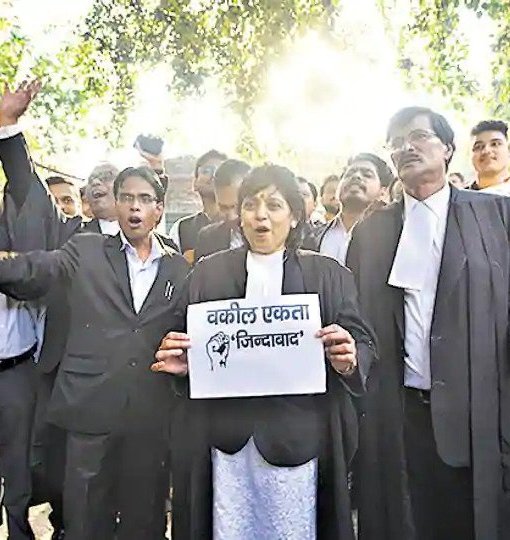

By A Special Correspondent
First publised on 2020-02-29 16:56:10
It is disgusting that lawyers are assuming the role of judge, jury and executioner and that too without according the accused the opportunity of a trial, by not only refusing to represent those accused of sedition but not letting others do so too. It matters nothing to them that it goes against professional ethics, several decisions of the Supreme Court and the rules and codes established by the Bar Council of India (BCI). Lawyers all over India strike work (which again is illegal) at the drop of a hat on the flimsiest of grounds. If refusing cases is also added to this there will be little hope left for litigants.
The way the bar associations in Hubli and Mysuru in Karnataka passed resolutions to deny access to legal services to those accused of sedition smacked of professional misconduct and an unholy and misplaced nationalist zeal. Being lawyers, they must have known that a person is not guilty until his crime is proved. They must also recognize that, even though not enshrined as a fundamental right, the right to have legal representation to defend oneself in a court of law is a basic human right. That is exactly why The Standards of Professional Conduct and Etiquette of the BCI enjoins upon them not to refuse any brief if the client is willing to pay their standard professional fee.
The irony of the situation cannot escape even the simplest of persons. Courts are temples of law. An accused hopes to get justice by getting his or her case heard by the court. To do so, he must either hire a lawyer or fight the case on his own. Since the latter is not an option for ordinary citizens, they have to hire lawyers. But what do they do if the lawyers or their associations illegally and unethically refuse to represent them? There is a provision through which the court can direct a lawyer to defend the accused but if the bar association passes a boycott resolution, no lawyer, even at the cost of contempt of court, will touch the case. Such is the brutality of the closed club that calls itself a bar association.
In the instant case, the Karnataka High Court has rightly taken cognizance of the matter and summoned the office bearers of the Hubli Bar Association to explain why they passed a resolution that went against professional ethics and codes of their association and also violated several judgments of the Supreme Court. This 'terrorism' by individual bar associations cannot be tolerated and the legal community must come together to prevent it.











